Support the ABLE Act Amendments: Press Your Lawmaker for a Vote
Written by |


There are very few days left this year. But in order for the amendments to the ABLE Act not to die in committee, they need to be brought to the floor for a vote.
(If you need a refresher on the ABLE Act and pending amendments, I wrote about them in this column. Basically, the act allows people with disabilities to open tax-free savings accounts, up to $100,000, with jeopardizing government benefits like Medicaid or Social Security, including SSI. As approved in 2014, however, the act limits these accounts to those whose age of disability “originated before age 26,” which wrongly disqualifies many people with multiple sclerosis.)
Here is the December Work Schedule for the House.
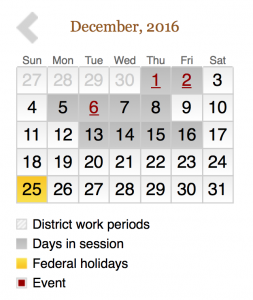 This calendar shows there are not many days left for conducting House business. The last weeks of December are considered state work periods. This means that your representative may be at your state capitol or an office in his or her home city.
This calendar shows there are not many days left for conducting House business. The last weeks of December are considered state work periods. This means that your representative may be at your state capitol or an office in his or her home city.
There are three ways to get a bill out of committee if the committee fails to act. The Speaker of the House (Paul Ryan) can allow it to come to the floor, or the Majority Leader (Kevin McCarthy) can call for a floor vote on the bill. The third way is harder, because it does an end run around recalcitrant leadership by what’s called a DISCHARGE PETITION. This requires the signature of an “absolute majority” — 218 of the 435 House members — to force a floor vote.
The ABLE Act amendments are unlikely to generate that level of support, given the recent election results, even though many Republicans sponsored and co-sponsored the amendments as well as the original bill. It might make a positive difference, though, to call on leadership to bring the amendments to the floor, as will calls to the original sponsors and co-sponsors, and, of course, your representatives.
The 2017 tentative schedules were released Nov. 21. New members will be working the first two weeks in January for several days in a row. Note, they do NOT vote on bills every day. They have specific days on which they vote, sometimes once a month depending on legislation. The best bet is to call ASAP so the committee (House Ways and Means) can move it for a floor vote. Failing that, leadership calls are the only realistic option to try to get a vote on the amendments. There is no time left for changes, additional amendments (like basing eligibility on listed conditions for Social Security disability rather than age, or allowing a starter amount of more than the $14,000 gift tax limitation now in place).
After Jan. 20, when Donald Trump takes office, I believe it is impossible to predict if the bill would be met by a presidential signature or a veto. Since President Obama signed the original bill, it is to be hoped that he would sign the amendments into law.
It is such a shame that these amendments have wasted away in committee since March 2016. It’s even more of a shame that lawmakers added the age limit. This may be our last and best chance to try to get the amendments to the ABLE act passed and signed into law.
Here are the amendments by bill number:
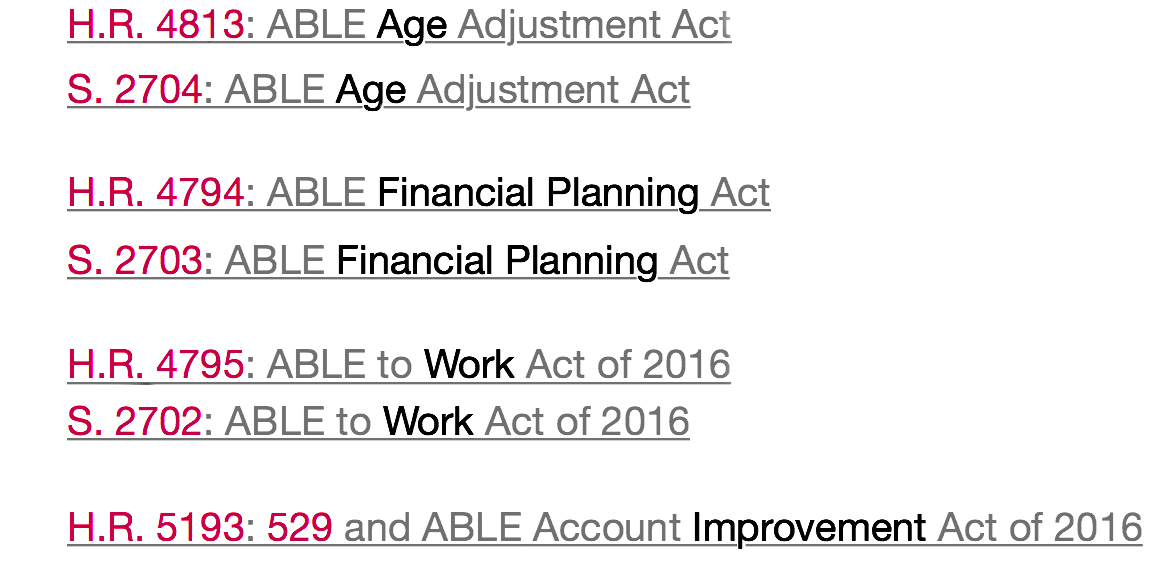
Here are links to find your representatives and your senators.
And here is a link to the govtrack.us website, which among other useful information includes a list of congressional committees.
The ABLE amendments are in the House Ways and Means committee because they relate to taxation, or, more specifically, the concern that the ABLE amendment increasing the age limit might impact revenue. That was a reason why they put an age limit in the first place on the original bill.
First of all, I think the ABLE program should not be judged based on revenue generation .There are many ways to increase tax revenue without doing it on the backs of disabled people. Second, an arbitrary age limit is surely unconstitutional under the equal protection clause. It is, after all, age discrimination. There are also other ways to limit the quantity of eligible people to maintain revenue. And, in any case, generating revenue from the gift tax is also questionable, since that money has already been taxed, either through income or capital gains taxes.
Furthermore, this assumes facts not in evidence, like money given or contributed to ABLE accounts not producing additional tax revenue in some fashion, i.e., not being used to stimulate the economy by allowing disabled people to buy new tires, replace broken dishwashers, and get a cap on crumbling teeth (for which I had to put out $1,000 or so at a pop in the last two months). I am having a lot of physical challenges right now and could use some help. With an ABLE account, I could put some money into the account to cover these expenses, and still qualify for the occasional help that I am starting to desperately need to keep up with household chores.
The members of the House Ways and Means committee are pictured below so that you may find it easier to call and ask them to move the ABLE amendment bills to the floor for a vote.
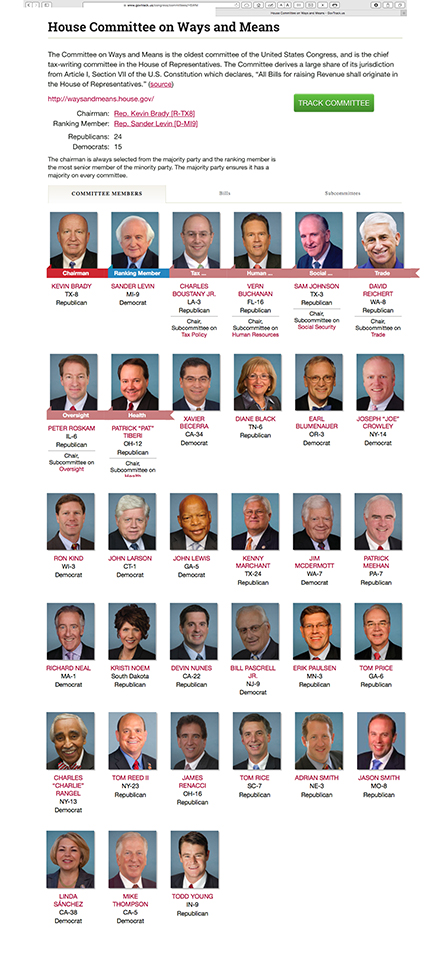 The govtrack.us site also has a way for you to keep on top of members, committees and bills; look for the green “track” buttons or on each members’ page (which you arrive at by searching a member by name). In addition to the “contact” link that is provided on govtrack pages, you can get alerts on a member’s vote and other activities.
The govtrack.us site also has a way for you to keep on top of members, committees and bills; look for the green “track” buttons or on each members’ page (which you arrive at by searching a member by name). In addition to the “contact” link that is provided on govtrack pages, you can get alerts on a member’s vote and other activities.
The govtrack.us web site also has an assessment of the issues each member tends to sponsor bills in and lists some of the bills most recently sponsored. [This link goes to Paul Ryan’s page, scroll down for his voting records.]
Member key voting records are identified and a chart showing “missed votes” let’s you know attendance. There is a nice chart with rollover pop-ups to provide the percentages as well as a button to “see the numbers” of missed votes. I love the pop-up numbers charts because it also brings home how long members have served. Rep. Kevin Brady of Texas, the chairman of House Ways and Means committee, took office in 1997 — so he has been in the House for 20 years as of January! (Here’s a link to Brady’s House govtrack.us webpage.)
Wikipedia also has good overviews on Congressional information. This is really helpful to understand how government works. For example, under the U.S. Constitution, the House has the EXCLUSIVE authority to initiate bills relating to REVENUE.
Finally, the specific House and Senate sponsors and co-sponsors of the various ABLE Act amendments, easily found on the govtrack.us website. The screen captures below may help you in searching or navigating within the site.
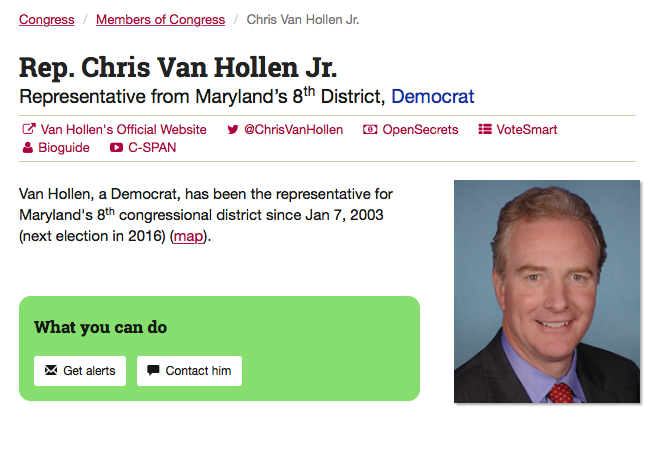
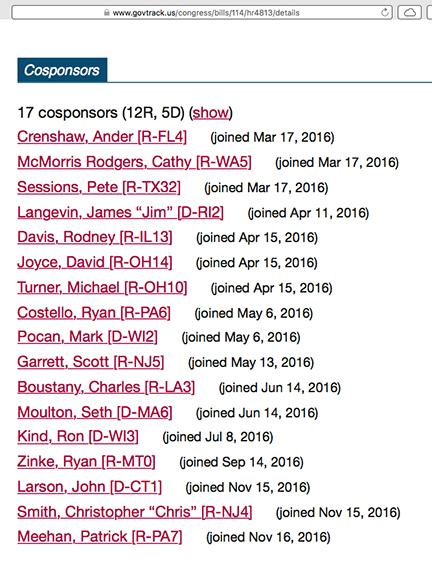
PRINCIPLE
SPONSOR IN
HOUSE
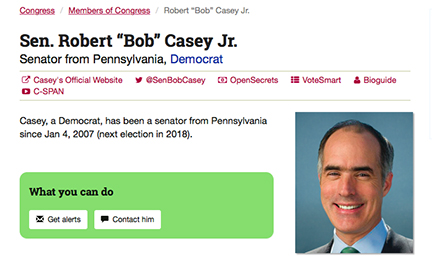
PRINCIPLE
SPONSOR IN
SENATE
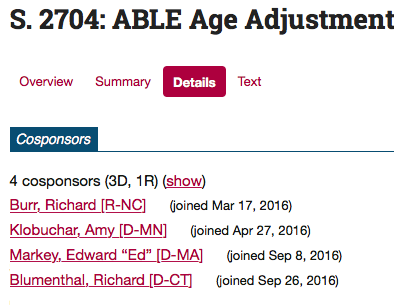
The ABLE Act amendments are also stalled in the Senate Finance committee:
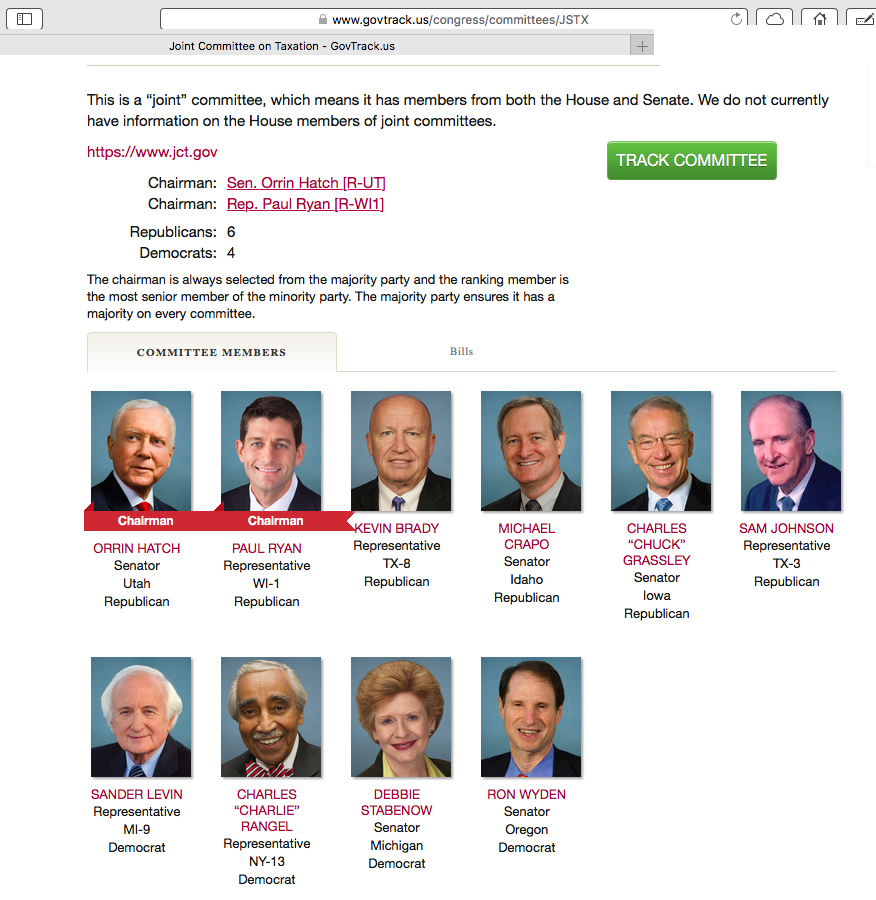
Note: Multiple Sclerosis News Today is strictly a news and information website about the disease. It does not provide medical advice, diagnosis, or treatment. This content is not intended to be a substitute for professional medical advice, diagnosis, or treatment. Always seek the advice of your physician or other qualified health provider with any questions you may have regarding a medical condition. Never disregard professional medical advice or delay in seeking it because of something you have read on this website. The opinions expressed in this column are not those of Multiple Sclerosis News Today, or its parent company, Bionews Services, and are intended to spark discussion about issues pertaining to multiple sclerosis.



Leave a comment
Fill in the required fields to post. Your email address will not be published.